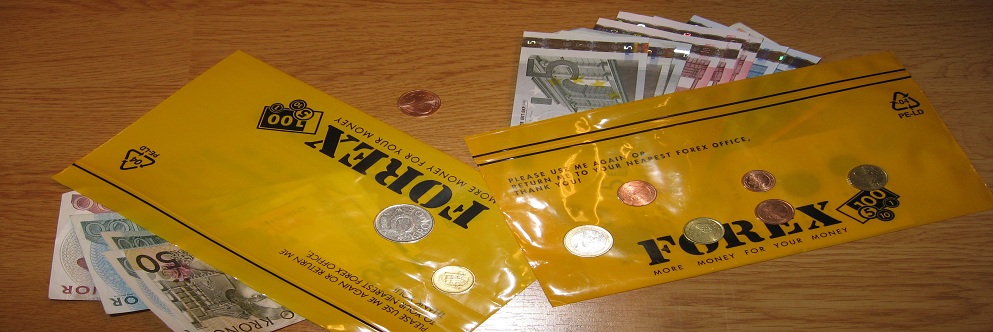We have already discussed what leverage is, and what it offers to the trader. Let us here take a look at the impact overleveraging can have on trader psychology.
As we mentioned above, the best trader is he who can detach himself from his emotions during his trading activity: one can have as much excitement and joy as he desires while enjoying the fruits of his achievements, but during trading itself, the heart should beat softly, and the brain should be in charge. Needless to say, a high-risk, all-or-nothing environment where any slight mistake can wipe out the trader's capital is not the environment that is conducive to creating such a mentality. Mistakes will inevitably happen during trading; neither man nor machine is capable of predicting every movement of the market precisely. To ensure that the mistakes that occur do not eliminate your capital, your self-esteem, and your chance of learning from your errors, do not over leverage.
High leverage works against the speculator by increasing the stakes and making the heart beat faster. No one jumps in his seat over the loss of a couple of dollars through which lessons are learned and mistakes recognized. But as potential losses increase, the beginner will have no time to focus on the lessons from his deficiencies, but instead will agonize over his stupidity at having risked so much money in a bet that didn't possess much chance of success anyway. And there begins the vicious spiral of fear, and losses which can eventually ruin a good man's livelihood.
But if the reader is afraid of the large holes that leverage can open in his pockets, he should also keep in mind that there's nothing related to the forex market per se that is dangerous and harmful. Forex is perhaps the safest of all market, since in general the prices move very slowly, and unlike in the stock market, the wipe-out of an unleveraged account is almost impossible: let us remember that nations do not go bankrupt, and currencies don't go to zero in general. But because many people see forex as a get-rich-quick scheme, and expect nonsensical levels of leverage to work for them, more people fail in this market than those who succeed.
To hopefully clarify this matter even further, and to let the incredulous reader reconsider his opinion, I'd like to remind him that the bankrupt Wall Street firms of 2008, like Bear Sterns, Lehman Brothers, Merril Lynch, had leverage ratios of at most 35 to 1, even in the worst cases. And there doesn't exist a person in the world today who doesn't, in hindsight, recognize how foolish and irresponsible it was to take that much risk. But if leverage in the thirties was bad enough for the giant Wall Street firms, with US government and international backing behind them to recapitalize them repeatedly before they went bankrupt, or were forced into gunshot marriages, how wise can it be for the "average Joe" to leverage his account in the fifty or even a hundred to 1? Given that the forex market is erratic, and unpredictable in the short run, how much wisdom can there be in overleveraging?
Remember, if you can't create great returns at low leverage, there's absolutely no reason to expect to do so on high leverage, and every reason to expect massive losses instead.
As we mentioned above, the best trader is he who can detach himself from his emotions during his trading activity: one can have as much excitement and joy as he desires while enjoying the fruits of his achievements, but during trading itself, the heart should beat softly, and the brain should be in charge. Needless to say, a high-risk, all-or-nothing environment where any slight mistake can wipe out the trader's capital is not the environment that is conducive to creating such a mentality. Mistakes will inevitably happen during trading; neither man nor machine is capable of predicting every movement of the market precisely. To ensure that the mistakes that occur do not eliminate your capital, your self-esteem, and your chance of learning from your errors, do not over leverage.
High leverage works against the speculator by increasing the stakes and making the heart beat faster. No one jumps in his seat over the loss of a couple of dollars through which lessons are learned and mistakes recognized. But as potential losses increase, the beginner will have no time to focus on the lessons from his deficiencies, but instead will agonize over his stupidity at having risked so much money in a bet that didn't possess much chance of success anyway. And there begins the vicious spiral of fear, and losses which can eventually ruin a good man's livelihood.
But if the reader is afraid of the large holes that leverage can open in his pockets, he should also keep in mind that there's nothing related to the forex market per se that is dangerous and harmful. Forex is perhaps the safest of all market, since in general the prices move very slowly, and unlike in the stock market, the wipe-out of an unleveraged account is almost impossible: let us remember that nations do not go bankrupt, and currencies don't go to zero in general. But because many people see forex as a get-rich-quick scheme, and expect nonsensical levels of leverage to work for them, more people fail in this market than those who succeed.
To hopefully clarify this matter even further, and to let the incredulous reader reconsider his opinion, I'd like to remind him that the bankrupt Wall Street firms of 2008, like Bear Sterns, Lehman Brothers, Merril Lynch, had leverage ratios of at most 35 to 1, even in the worst cases. And there doesn't exist a person in the world today who doesn't, in hindsight, recognize how foolish and irresponsible it was to take that much risk. But if leverage in the thirties was bad enough for the giant Wall Street firms, with US government and international backing behind them to recapitalize them repeatedly before they went bankrupt, or were forced into gunshot marriages, how wise can it be for the "average Joe" to leverage his account in the fifty or even a hundred to 1? Given that the forex market is erratic, and unpredictable in the short run, how much wisdom can there be in overleveraging?
Remember, if you can't create great returns at low leverage, there's absolutely no reason to expect to do so on high leverage, and every reason to expect massive losses instead.





